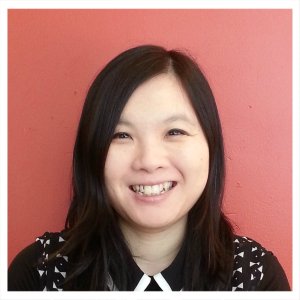Interview conducted by Jennifer D. Foster.
A career as an editor is often a solo adventure, especially if you’re a freelancer. So we thought one way to better connect with fellow editors was to ask them the W5: who, what, where, when, and why. Read on for some thought-provoking, enlightening tidbits from those of us who choose to work with words to earn our keep.

Please tell us a little about yourself, the kind of work you do (and where you live), and how long you’ve been an editor.
I’m a publisher and writer of speculative fiction, based in Toronto. I fell into editing in 2014 when Derwin Mak (fellow writer/editor) told me that an Asian-Canadian magazine called Ricepaper Magazine wanted to create a speculative fiction issue but didn’t have enough people to do it. I volunteered to help, and we edited an issue together in record time! In 2017, I was recruited by Ricepaper to help with writing film reviews, marketing, and coordinating events. In 2018, my role progressed to editorial and administrative work. My tasks now involve editing, interviewing potential editors, networking, coordinating events, and leading the production work for books and magazines. In parallel timelines, for my own press, Dark Helix Press, I began working on different anthology projects with editorial teams. Over time, I’ve learned a lot from leading projects and working with many diverse editors on magazine and book production. At the moment, I’m also in the middle of finishing up courses for a creative writing certificate from Ryerson University.
Who: If you could edit one famous author, living or dead, who would it be?
The wonderful Ray Bradbury. His short stories are amazing, but I would love to ask for a bit more detail for some of them.
What: Do you have a favourite punctuation mark and/or a favourite word?
Not really. I’m non-discriminatory towards punctuation marks and words! However, I become deeply irked when I see “like” multiple times in a piece.
Where: If you could work anywhere in the world as an editor, where would that be?
I’m very simple: at home with a cup of hot tea, dark chocolate almonds, access to facilities, and video-game orchestra music to keep me company.
When: Was there ever a time in your life when you seriously questioned your career choice?
There was a time in 2016 when after my father’s death I stopped functioning. I fell into a deep depression and literally couldn’t get out of bed. As the pain of loss lessened, writing and editing became more important. My father was a quiet man and after he left, we discovered we didn’t know that much about him. Although Asian Canadians have been in Canada since the 1800s, only now are more of their stories being made visible. We are seeing a shift from stories about suffering as railway workers or immigrants to stories with modern settings, which are more relatable to newer generations. My work as an editor is to help the author’s message become clearer and more accessible to readers.
Why: Why did you choose to become an editor? Or, should we ask: Why did editing choose you?
By being a publisher and editor, I want to open the door to more diversity in the publishing industry. With Dark Helix Press, I have the privilege of working with writers from all over the world (Canada, US, UK, Australia, Egypt, Sweden, etc.), and it’s a lot of fun to be learning from others! Ricepaper has been around since 1994 and given that so few places cater to Asian viewpoints in the English language, it’s important to keep this platform alive for future generations born abroad. Representation matters. As a child growing up, I didn’t read any books with a Chinese Canadian as the main character. When I have spare time, I do speaking engagements to talk about diversity and publishing to others who want to follow a similar path to mine.
As a bonus, by editing other people’s work, I have found my writing has improved as well!
And, of course, we just had to ask the inevitable how: How would you sum up your motto?
Just do it! Nike’s trademark slogan is a great motto that I use daily. Overthinking spirals me into procrastination and then nothing gets done! To quote Arthur Plotnik: “You write to communicate to the hearts and minds of others what’s burning inside you, and we edit to let the fire show through the smoke.” The job of the editor is to polish up the story until it’s clear and shiny for the reader to consume. If both the editor and writer do a great job, a beautiful piece of writing is the result!
Jennifer D. Foster is a Toronto-based freelance editor and writer, specializing in book and custom publishing, magazines, and marketing and communications. She is also chair of Editors Toronto, vice-president of the Toronto branch of Canadian Authors Association, and administrative director of the Rowers Reading Series.
This article was copy edited by Gagandeep Bimbh.
